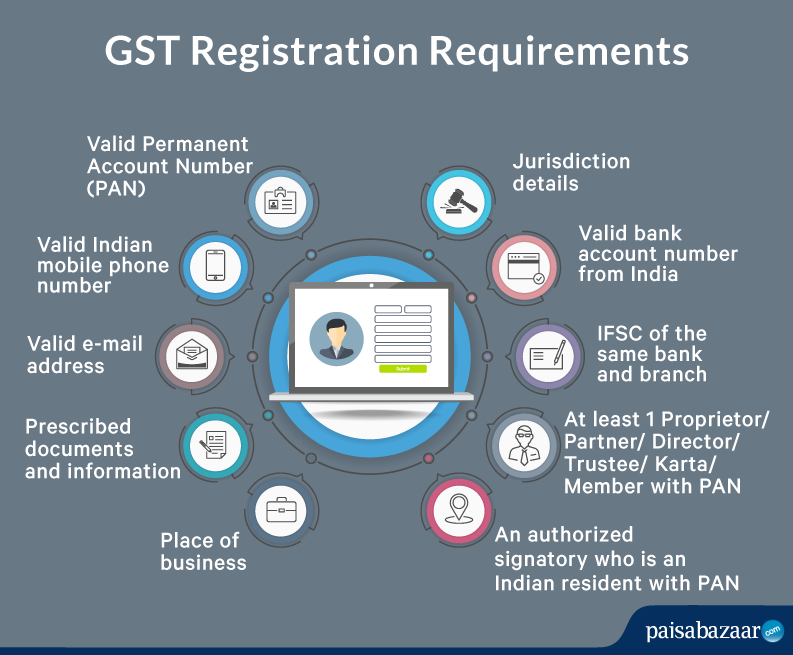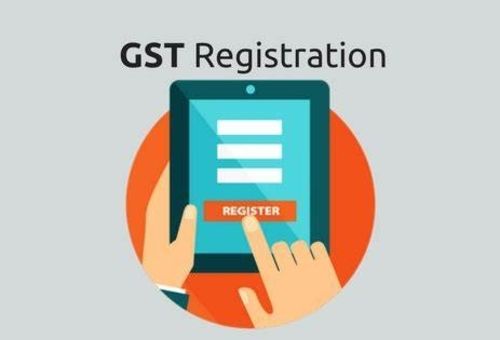Improving Your Singapore GST Registration: A Thorough Approach
Improving Your Singapore GST Registration: A Thorough Approach
Blog Article
The Ultimate Guide to Streamlining the GST Registration Process and Demands for Small Company Owners

Understanding GST Fundamentals
To understand the principles of the Product and Solutions Tax (GST) system, tiny organization proprietors should first understand its underlying concepts and implications. GST is a value-added tax obligation imposed on many goods and solutions for residential intake. It aims to improve the taxes process by changing numerous indirect taxes enforced by the state and central federal governments. Under the GST regimen, businesses are called for to register and accumulate tax obligation in support of the government, making sure transparency and compliance.
Among the vital concepts of GST is input tax obligation credit, which permits organizations to claim credit history for tax obligations paid on their acquisitions. This system protects against the plunging effect of taxes and advertises performance in the tax obligation system. Additionally, GST is a destination-based tax obligation, indicating that the tax obligation is imposed at the point of intake instead of the point of beginning. This makes certain fair circulation of tax obligation profits amongst states based on where the products or solutions are taken in. Understanding these fundamental principles is crucial for small business owners to browse the complexities of the GST system and guarantee compliance with the regulation.
Eligibility Criteria for Registration
Having developed a foundational understanding of GST concepts, little organization owners need to now meet certain eligibility requirements to continue with the registration procedure. In India, entities took part in the supply of products or services with an annual aggregate turnover exceeding Rs. 40 lakhs (Rs. 10 lakhs for unique category states) are needed to sign up for GST. Additionally, specific organizations such as those involved in inter-state supply of goods, casual taxed persons, and those called for to pay tax obligation under the reverse charge device need to register for GST irrespective of their turnover. Moreover, services that were registered under the previous tax routine (VAT, service tax, etc) are also mandated to register under GST. Nonetheless, farming companies that only supply produce out of primary manufacturing are exempt from GST registration. It is essential for service owners to thoroughly evaluate their qualification based upon these requirements to ensure compliance with the legislation and stay clear of any kind of fines for non-compliance.
Files Required for GST Enrollment

Simplified Registration Process Actions
Complying with the collection and verification of the requisite documents, the enrollment procedure for GST can be browsed via a series of streamlined actions developed to assist in effective compliance for little business proprietors. Upon effective confirmation, an Application Recommendation Number (ARN) explanation is provided, showing the completion of the GST registration procedure. By adhering to you can try this out these streamlined actions, tiny service proprietors can successfully sign up for GST and guarantee compliance with tax laws.
Tips for Ensuring Compliance
To keep governing adherence and functional integrity, attentive oversight and positive steps are essential in ensuring conformity with GST demands for small business owners. Small service proprietors need to stay updated with GST policies, filing due dates, and any type of adjustments in tax rates to stay clear of penalties and preserve a great standing with tax authorities. Going to GST recognition workshops or training programs can enhance understanding and conformity with GST regulations, inevitably profiting the business in the long run.
Final Thought
To conclude, small company proprietors should recognize the fundamentals of GST, satisfy the qualification criteria, gather essential records, and adhere to the simplified registration process actions to ensure compliance. By streamlining the GST enrollment process and demands, small company proprietors can prevent charges and operate their organizations smoothly within the lawful structure - Singapore GST Registration. It is crucial for little business owners to remain compliant and informed with GST policies to preserve a successful service useful link procedure
Tiny business proprietors seeking GST enrollment must ensure they collect and submit the necessary files to finish the enrollment procedure successfully. The documents needed for GST registration commonly consist of evidence of service registration or incorporation, FRYING PAN (Permanent Account Number) card of the service identity, entity and address evidence of the promoters/partners/directors, pictures, address proof of the area of business, financial institution account declarations or terminated cheques, and permission kinds. Attending GST recognition workshops or training programs can improve understanding and compliance with GST guidelines, eventually profiting the organization in the lengthy run.
By simplifying the GST enrollment procedure and requirements, little business owners can stay clear of charges and run their services efficiently within the lawful structure. It is crucial for little company proprietors to stay enlightened and compliant with GST regulations to keep a successful business operation.
Report this page